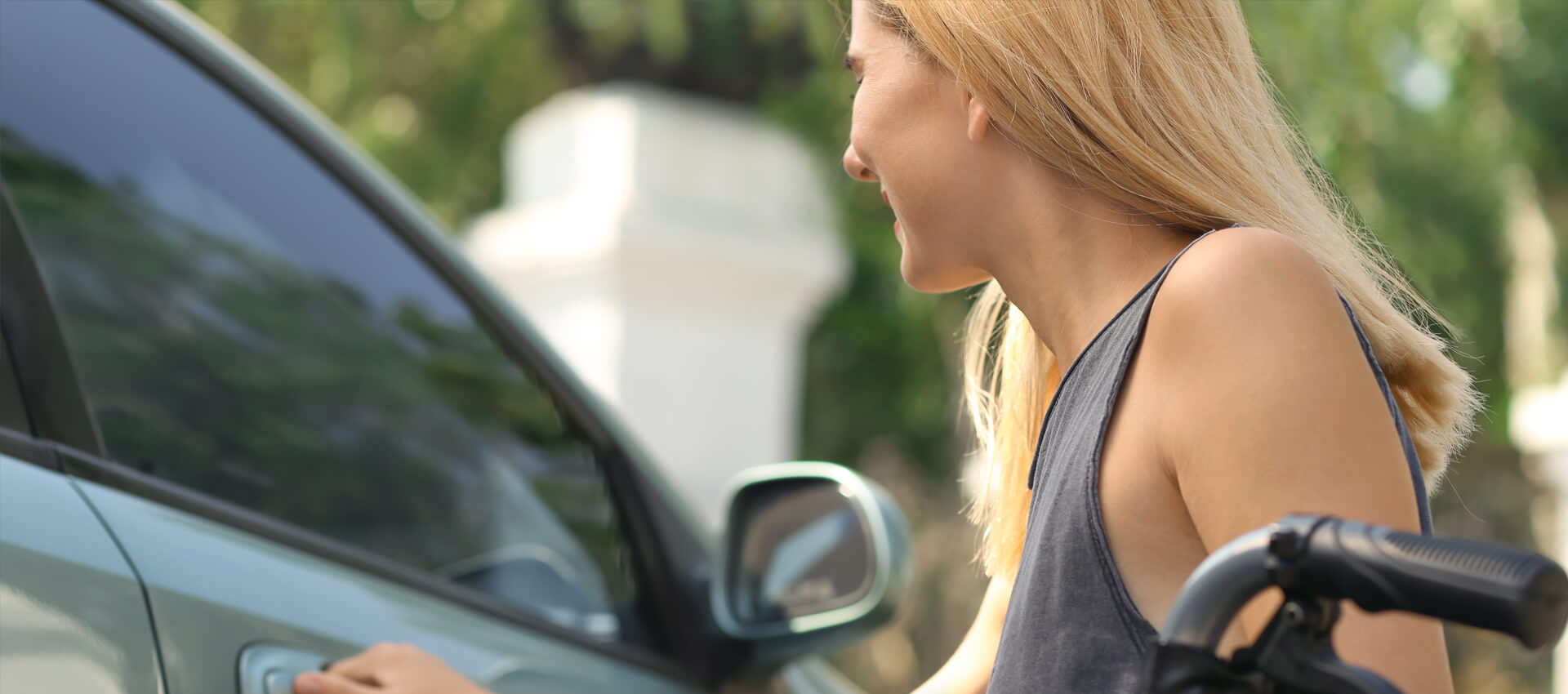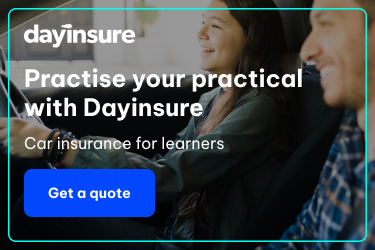Learning to drive with a disability

Getting behind the wheel of your very own car gives you a complete sense of freedom.
Say goodbye to waiting for public transport or relying on friends and parents for lifts!
This is especially true for people living with a disability. Whilst a disability doesn’t necessarily stop you from driving, there can be a few extra things to be aware of when learning.
Applying for your provisional licence.
First things first; if you do have a disability, you must inform the DVSA straight away. If you have not yet begun your learning journey, you must declare this when you apply for your provisional license. Fail to declare and you could be fined up to £1,000.
If you are wondering how you know if your health condition needs declaring, click here to see a list of disabilities and instructions on what to do next.
A way in getting a definitive conclusion on your driving is to actually visit a driving mobility assessment centre. While this might not be visible to everyone, they exist for this very purpose and will be able to tell you your driving future after a quick appointment. Please click here to find your local assessment centre!
Did you know, that for some disabilities, you are able to apply for your provisional earlier than everyone else?
If you receive either the higher rate mobility component of Disability Living Allowance (DLA), or the enhanced rate mobility component of Personal Independence Payment (PIP), you can get a licence from the age of 16.
Picking the expert.
Depending on the nature of your disability, it might be worth considering learning to drive with a specialist driving instructor. This is someone who has extra training in how to teach people with various disabilities.
As well as showing you the ropes, they can also advise on things like working adapted controls and also how to get your wheelchair, if applicable, in and out of your car easily.
What type of car is best for you?
For some, learning to drive is going to be harder than it will be for others. But, opting for an automatic car rather than a manual can help to speed things up. Not having to learn about gear changes or clutch control is one less thing to think about and could be game-changing!
Do note, if you do go down this route then you will not be able to drive a manual car after passing with an automatic car.
If you do have a physical disability that impedes your ability to make full use of the controls, car modifications could be a real lifesaver for you. There is a whole world of gadgets and nifty adaptations out there. Kit your car out with personalised tools to tailor your needs.
Here are some examples of modifications you may not know even exist:
- Electronic accelerators
- Car boot hoist – for wheelchair users
- Transfer plates – for wheelchair users
- Hand controls to work the pedals
- Joystick or ball to manoeuvre the steering wheel
- Customised foot pedals.
Booking your Theory Test
As you book your Theory Test, declare any disability or health condition that you have. This will allow the centre to know of any allowances necessary that are relevant to your needs. If for example, you have hearing issues, you may be helped with a lip sinker, sign interpreter or hearing aid loop system, for no extra charge.
Booking your Practical Test
Again, when you book your Practical Test you must mention your disability so the examiner can allow circumstantial allowances. For example, you may be given extra time to speak through the modifications to the car. If you are hard of hearing, the examiner may give you written notes at the start of the test, look at you directly so you can lip read, or give you hand signals.
What about after you pass?
Depending on your disability, you may be eligible to apply for a blue badge. A blue badge is a permit that provides you with access to on-street parking spaces that is a lot more convenient to your destination. Don’t forget to pack them in the suitcase too as they can be used in countries across Europe. Find out more here.
What about insurance?
Many people with disabilities assume it will have an affect on insurance deals. Rest assure, companies are not allowed to charge you more for having any form of disability. We would however recommend speaking over the phone with the insurance provider to make things a little easier. Sometimes online forms aren’t easy to navigate or don’t ask the right questions relevant to you. Speaking to someone will allow you to be specific about yourself ensuring you get the right cover.
Some common questions:
What happens if I have passed and then develop a disability?
It is imperative to inform the DVLA of any new disabilities immediately. If you aren’t sure if to be driving or not, contact your doctor.
Can the DVLA revoke your license if you have a disability?
Yes they can if they think you could be an unsafe driver. it is however judged on a case-by-case basis and your doctor will most likely be consulted before.
Are specialist instructors more expensive?
Not necessarily. The prices of your lessons always vary and can change depending on where you live and the school you decide on. The best thing to do is do your homework and shop around for the best price.
Driving with a disability shouldn’t hold you back at all. As long as the DVLA is aware of your condition and give you the go ahead, you can be behind the wheel to freedom in no time!


